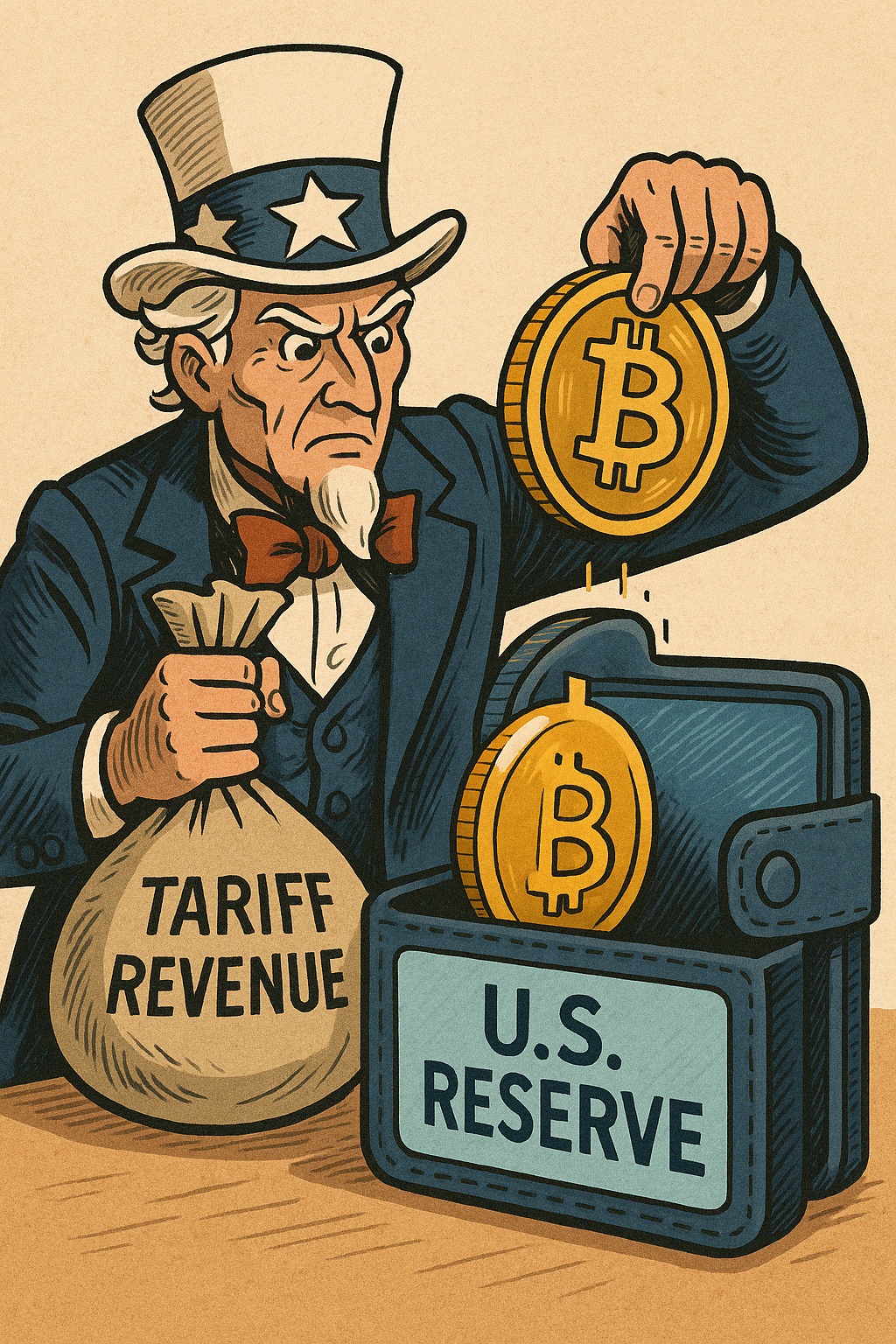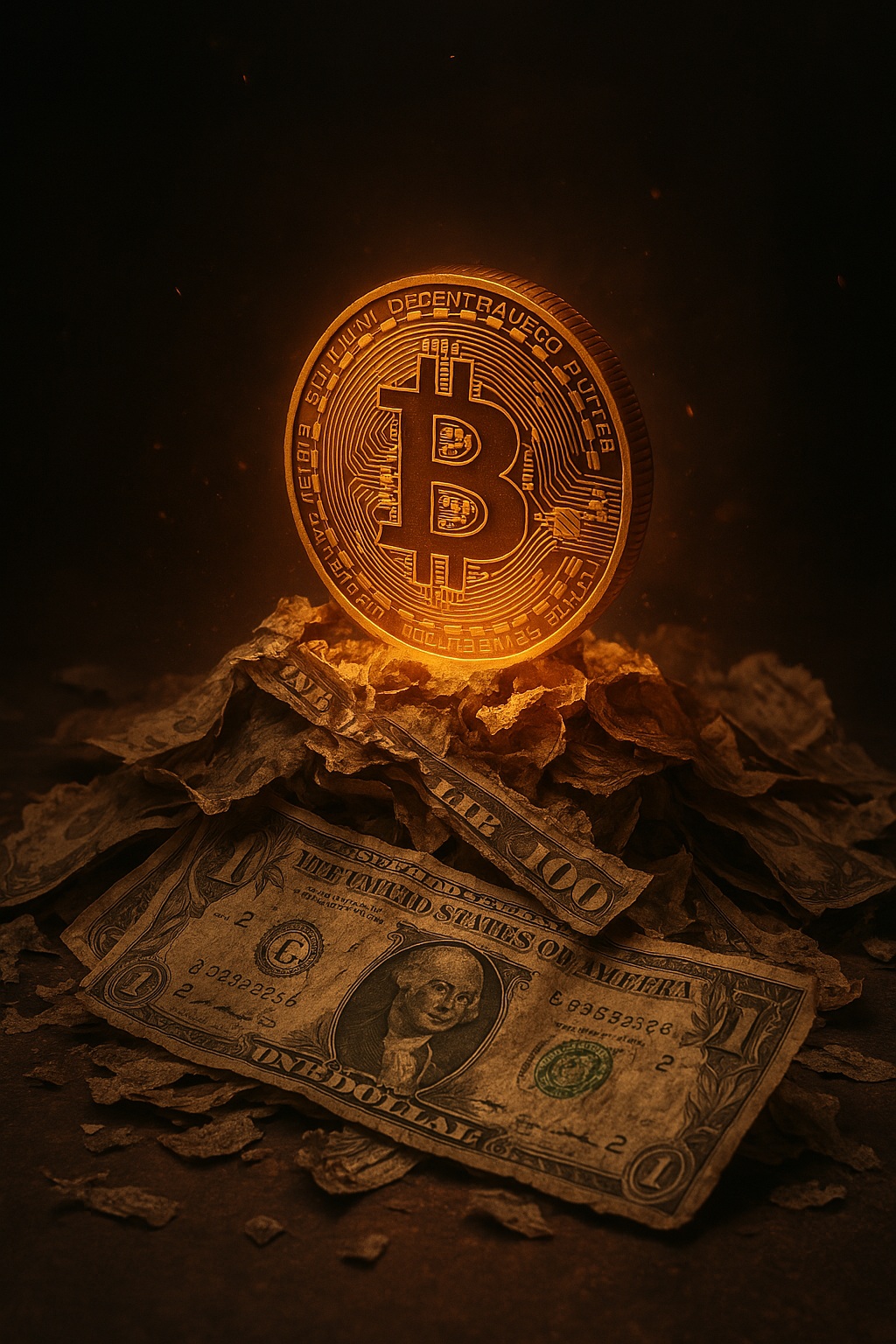What if the U.S. government used tariff revenue to buy Bitcoin?
That question is no longer just speculation. It’s now part of a growing conversation inside the Trump administration as it looks for bold, budget-neutral ways to build a national reserve of Bitcoin—without raising taxes or printing more money.
And while the idea isn’t official policy yet, it’s drawing serious attention.
A Strategic Reserve for Bitcoin
Back on March 6th, 2025, President Trump signed an executive order to create the Strategic Bitcoin Reserve—a national stockpile of Bitcoin meant to mirror the role gold once played in U.S. financial policy. According to Reuters, this reserve was initially funded by Bitcoin seized in criminal and civil cases. That stash is estimated to be worth over $17 billion.
The U.S. won’t be selling this Bitcoin. That’s part of the strategy. Treasury Secretary Scott Bessent made it clear that the goal is to treat Bitcoin as a long-term store of value—just like gold.
But if the government wants to build this reserve further, how does it do it without new spending?
That’s where things get interesting.
Bo Hines and the Tariff Strategy
Today, April 14th, Bo Hines—the Executive Director of the President’s Digital Asset Advisory Committee—suggested something new: the U.S. could use tariff revenue to purchase additional Bitcoin.
The idea is simple. Instead of pulling from taxpayer funds, use income from tariffs—essentially, fees charged on imports—to increase Bitcoin reserves. This would make the acquisition budget-neutral, meaning it doesn’t add to the deficit or directly cost the public.
It’s not official yet. But it’s aligned with Trump’s executive order, which tasked federal agencies with finding budget-neutral ways to expand the reserve.
Other Creative Strategies on the Table
This isn’t the only proposal floating around.
Bo Hines previously said the U.S. could realize gains from gold certificates and use that capital to purchase Bitcoin. Senator Cynthia Lummis, a long-time crypto advocate, also supports converting parts of the U.S. gold reserve into Bitcoin as part of her BITCOIN Act of 2025.
And it’s not just political figures pushing this idea.
On April 4th, investment analyst Alexander Blume said the U.S. could leverage an estimated $400 billion in tariff revenue to acquire Bitcoin—possibly triggering a 15–20% price rally in the process. (TheStreet Crypto)
Bitcoin and the Tariff Connection
Trump’s recent tariff moves have already impacted markets—and crypto is no exception.
After a sweeping tariff announcement on April 3rd, Bitcoin briefly dropped by 10%. But when the White House announced a 90-day tariff pause on April 10th, Bitcoin bounced back more than 7%.
This volatility shows just how tightly tied Bitcoin is to U.S. policy now. As the federal government steps into the market—not as a seller, but as a buyer—the ripple effects could grow.
Is the U.S. About to Buy More Bitcoin?
Right now, the idea of using tariff revenue to buy Bitcoin is not official.
There’s no law in place. No clear mechanism. But as of today, it’s part of an active internal discussion. The Treasury and Commerce Departments are still evaluating proposals, and no final decision has been made.
That said, the direction is clear: the U.S. government wants more Bitcoin—and it’s looking for creative, politically viable ways to get it.
Final Thoughts
If the U.S. successfully starts buying Bitcoin with tariff income or gold proceeds, it could mark a turning point in the global digital asset race. Other nations may feel pressure to respond. And Bitcoin’s role as a government-backed reserve asset might finally become reality.
The question now isn’t if governments will buy Bitcoin. It’s how—and how fast.



